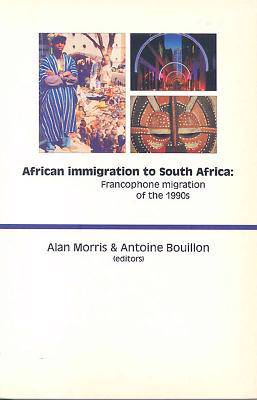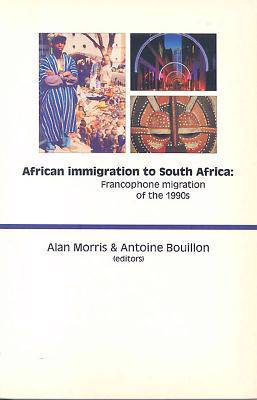
- Afhalen na 1 uur in een winkel met voorraad
- Gratis thuislevering in België vanaf € 30
- Ruim aanbod met 7 miljoen producten
- Afhalen na 1 uur in een winkel met voorraad
- Gratis thuislevering in België vanaf € 30
- Ruim aanbod met 7 miljoen producten
Zoeken
African Immigration to South Africa
Francophone Migration of the 1990s
Antoine Bouillon, Alan Morris
Paperback | Engels
€ 27,95
+ 55 punten
Omschrijving
Often designated as 'illegal' immigrants, an African person who cannot speak an indigenous language is clearly foreign, a threat and thus a potential target for abuse. Such stereotyping helps create and reinforce a xenophobic climate. The papers in this book explore and attempt to understand the nature of the phenomenon. The disintegration of apartheid in the 1990s was accompanied by the scrapping of the whites-only immigration policy and thousands of Africans from the region and further north moved to South Africa. A feature of this immigration flow has been the number of immigrants and asylum seekers from francophone Africa. Unfortunately this has not been welcomed by a large part of the local population and xenophobia has become an increasingly serious issue.
Specificaties
Betrokkenen
- Auteur(s):
- Uitgeverij:
Inhoud
- Aantal bladzijden:
- 177
- Taal:
- Engels
Eigenschappen
- Productcode (EAN):
- 9781919825335
- Verschijningsdatum:
- 1/03/2012
- Uitvoering:
- Paperback
- Formaat:
- Trade paperback (VS)
- Afmetingen:
- 150 mm x 231 mm
- Gewicht:
- 299 g

Alleen bij Standaard Boekhandel
+ 55 punten op je klantenkaart van Standaard Boekhandel
Beoordelingen
We publiceren alleen reviews die voldoen aan de voorwaarden voor reviews. Bekijk onze voorwaarden voor reviews.








